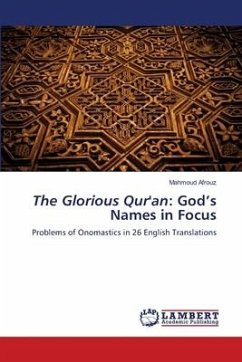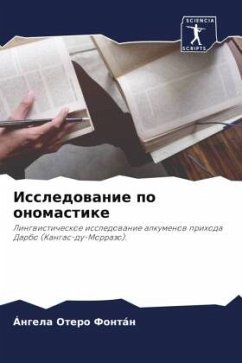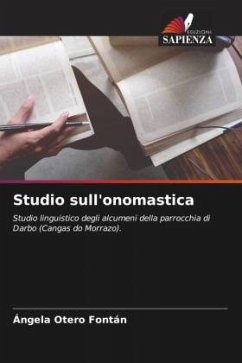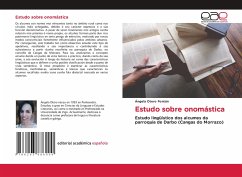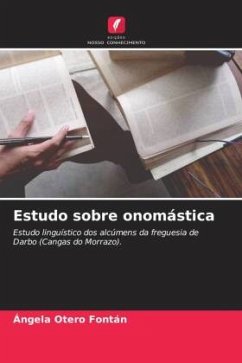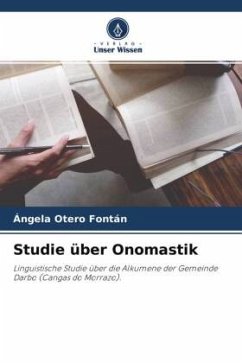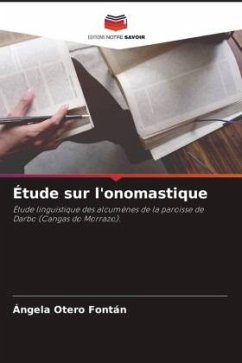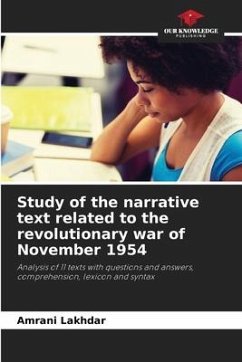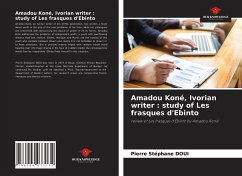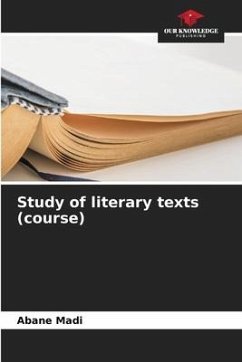
Study on onomastics
Linguistic study of the alcumes of the parish of Darbo (Cangas do Morrazo).
Versandkostenfrei!
Versandfertig in 6-10 Tagen
29,99 €
inkl. MwSt.

PAYBACK Punkte
15 °P sammeln!
Alkumes are very relevant names both in the rural environment and in the most popular circles, due to their expressive character and their denominative function. In spite of being very old phenomena with a very close relationship with the proper name, the alcuños are part of a rich linguistic heritage in serious danger of extinction, motivated by new ways of coexistence strongly influenced by urban environments. Therefore, the aim of this work is to study this type of appellatives, highlighting their importance and contributing to their subsistence from a collection in the parish of Darbo, in...
Alkumes are very relevant names both in the rural environment and in the most popular circles, due to their expressive character and their denominative function. In spite of being very old phenomena with a very close relationship with the proper name, the alcuños are part of a rich linguistic heritage in serious danger of extinction, motivated by new ways of coexistence strongly influenced by urban environments. Therefore, the aim of this work is to study this type of appellatives, highlighting their importance and contributing to their subsistence from a collection in the parish of Darbo, in the municipality of Cangas do Morrazo. For this purpose, we analyze the concept of alcume from a theoretical and practical point of view, giving an account of its origin, its evolution throughout history as well as the linguistic characteristics that define it and a possible classification from a semantic point of view. Our purpose is to examine the phonetic, morphological, semantic and lexical characteristics that characterize the dialects collected in an area with a marked dialectal difference in several aspects.



